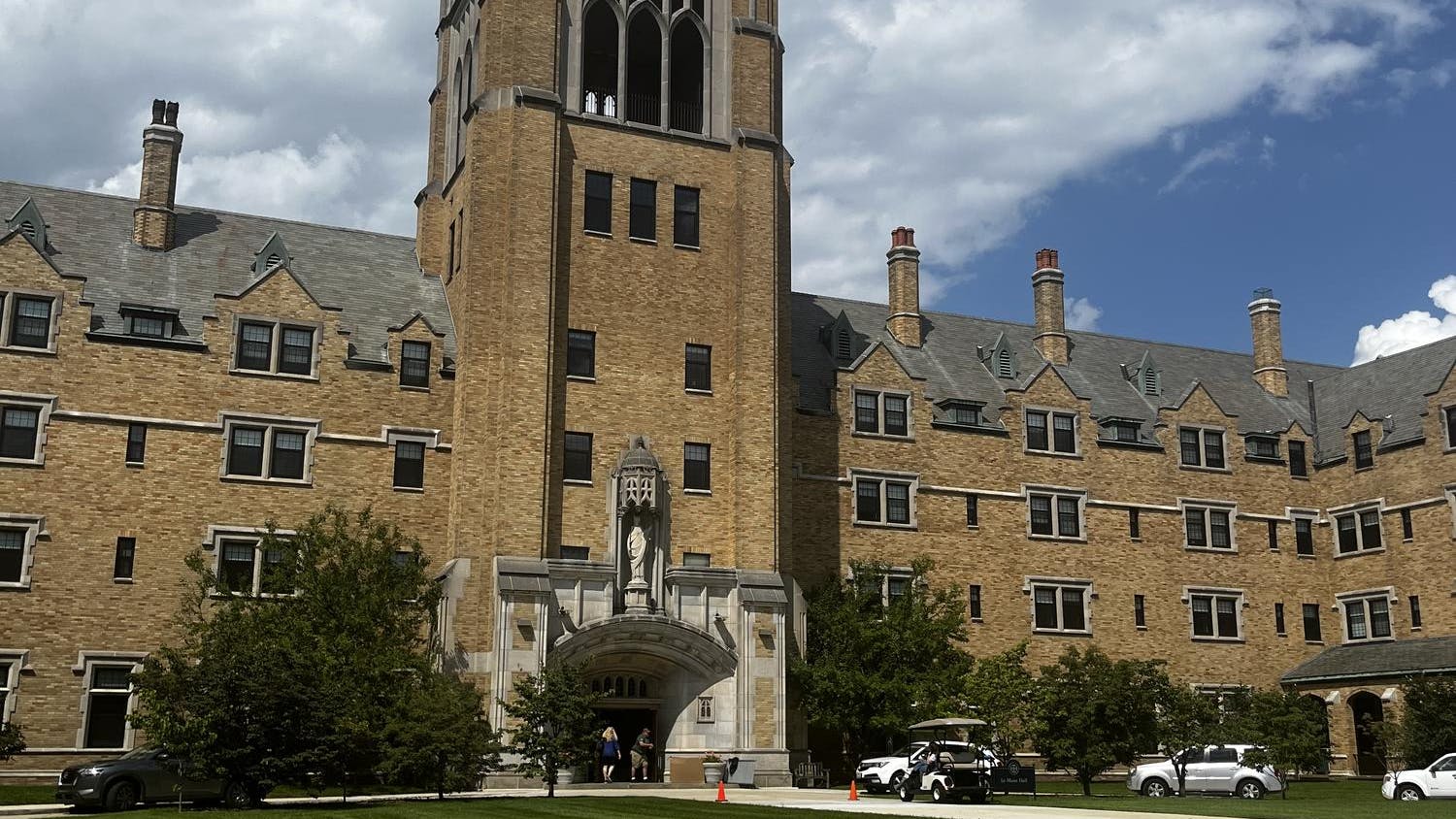For students who study abroad in Jerusalem this summer, Bethlehem will only be a 15-minute walk, but one security checkpoint, away from their housing complex.
"It's a much higher level of security than we're used to seeing," Office of International Studies Assistant Director Liz LaFortune said. "There will be lots of people no older than you watching you and carrying military weapons and if they want to detain you and ask you tons of questions, they can."

Though the U.S. State Department issued a travel warning to Israel, the West Bank and the Gaza strip, the Jerusalem study abroad program was recently approved for Summer 2010. It will be Notre Dame's second summer program in Israel since the semester study abroad program was suspended in 2000 due to violence, LaFortune said.
LaFortune said students will be able to study abroad in Jerusalem despite the warning because the program will be highly structured and will adjust schedules according to current events.
"Because there is a State Department warning, we have to structure things so we can see and do as much as possible but not worry about your safety every minute," she said.
LaFortune said some areas would simply be too dangerous to visit.
"You will not visit the Gaza Strip. Gaza is a complex place but certainly a place that is not peaceful for a person who doesn't understand the situation," she said. "There are other cities that are off limits, but there are a whole lot of places we can go."
The staff at The Tantur Institute for Ecumenical Studies, where the students will stay, live in the area and will provide knowledge about nearby cities and any safety concerns that may exist.
"They might say, you know what, if you have plans to go to Bethlehem today, I would change them. And we trust them on that," LaFortune said. "Everything depends on the security situations of the day. That's one of the reasons that we are able to do this."
Students who study abroad in Jerusalem will also be required to sign an addition to du Lac, LaFortune said.

"Like having to be back in the building at a certain hour or leaving the facility only in groups at night. Literally down to things like you may not bring Israeli soldiers back to the facilities," she said.
When students first arrive in Jerusalem, staff at the Tantur Institute will give them a tour of Bethlehem and Jerusalem. After students are familiar, they will be allowed to travel independently in the cities.
Despite the inherent danger of traveling to Israel, LaFortune said last year's summer abroad program went smoothly and had no security incidents.
Senior Craig Ford, who traveled to Jerusalem last year, said he felt relatively safe while in the country.
"What I learned when I was there is that Israel is actually a low crime country. People just generally want to get on with their daily lives. As long as you just respect their customs, everything is normal," he said.
Ford said Americans see Israel and Palestine differently than how they actually are because the media only portrays the violent, and more interesting, news.
"The only time I think the American public hears about events in Israel or events in Palestine is when something major erupts," he said. "Day by day when you pick up the newspaper it's just boring stuff like the stock numbers or who is giving a speech today."
Senior Laura deGive also said she never felt unsafe while in Israel.
"Israeli soldiers with big guns were a constant sight, and the Wall snaked behind our compound, dividing the West Bank from Israel," deGive said. "But apart from these visual reminders of the Holy Land's instability, I never felt myself to be in any danger."
LaFortune said last year's success was based on "careful planning, the limits we put on students and the good judgment of the students that were there."
"We cannot guarantee your safety there. But we have a lot of tools are our disposal to help you be safe," she said.
DeGive said the experience of being in Jerusalem was well worth any of the security risks.
"No one should decide to not go to Jerusalem because of the security risks," deGive said. "The experience is absolutely invaluable. You learn fifty times as much as you could from a textbook. The Jerusalem Program is an incredible opportunity."












